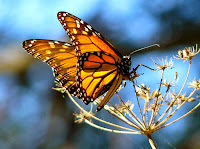She’d looked out that window her whole life, imagined her father holding her up minutes after she popped out—her mother’s words: You just popped out, I was so grateful—imagined her father holding her up to the window and saying, There, that’s it. What you’ll see of the world. Ain’t it beautiful?
It was beautiful. She knew that, had never tried to convince herself otherwise. The rise of the hillock in the distance, the ring of pine trees her granddaddy planted at the end of the yard, Fairy Ring, he’d called it. “It’s where the wee people live,” he claimed, and she believed him.
There had been times when she saw tiny footprints on top of the snow or a flash of red darting under a leaf. They were there—elves, leprechauns, the little people—who knew what they called themselves? She called them Smoke now, because she hadn’t seen their traces in ages and was beginning to doubt the old stories. Regret can do that.
She should have moved at least once, lived somewhere else, but roots are deep—Granddaddy again—that’s what feeds us.
Well. She had been to Chicago once, had stayed in a hotel, knew what it was to wake without seeing the sun rise, and didn’t like it all that much.
But still.
A wave of regret swept through her. She’d always been here, lived here, woke up here, went to bed here, looked out this window. Here.
Birthdays did this to her, brought her to the window where she’d first looked out on the world, and here she was again—90 years later—the oldest person in the history of the family and still here.
Well, that was a thought to be glad about. She took a last look out the window and saw the streak of red—two of them, pointed hats and all—darting over the snow. Still here.
© 2013 Kathleen Coskran










